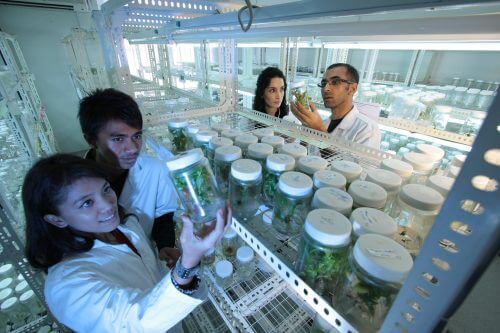Opinion: To fight against anti-research policies, it is not enough to march for science. Scientists must engage in long-term political activism

At the beginning of 2017, scientists in the USA announced that on April 22, Earth Day, they intend to "leave the laboratory and take to the streets" and conduct A march for science. The problem that worried the organizers of the march is the plans of the new administration and the US Congress to promote policies that are expected to increase environmental pollution, harm health, reduce our ability to predict natural hazards such as hurricanes - and throw conventional science out the window. The protest marches, held in the capital Washington and other cities in the US and around the world, soon gained the support of major scientific organizations, tens of thousands of volunteers, masses of Twitter users, and 800,000 members of the Facebook group [according to the organizers, about 100,000 marchers participated in the main march in Washington, and about a million In all 600 cities where similar marches were held - the editors].
This is a start - but it is not enough to continue to influence the American president, the Congress and legislators in the various countries.
"Don't send them messages on Twitter. Don't sign worthless petitions online. Call them," he wrote on Twitter David Shipman, a marine biologist at the University of Miami. He is right: citizens should make personal contact with the government officials and make it clear to them that they intend to back up their opinions at the ballot box.
Protest marches can have a real impact. In the 50s and 60s of the 20th century, the demonstrations of the civil rights movement in the USA showed politicians that a huge number of people were against racism and the policy of racial segregation and that they were ready to act against them. Marches for science can also achieve such a result. the physicist Holt's head, a former member of the US House of Representatives from the state of New Jersey, and now the executive director of the American Association for the Advancement of Science (AAAS), said his organization supports the march because the election of President Donald Trump has led to many attacks against the idea that scientific evidence and rational thinking are the basis which should guide the national policy. He was also concerned about political attacks on the very integrity of scientific activity. There are fears that supporters of President Trump and conservative politicians will dismiss the march as mere whining by the elites. This is the reason why, alongside the enthusiastic joining of many scientists to the initiative, there were also those who preferred not to be involved.
But there are ways to ensure that the message the marchers wanted to convey will be engraved in the minds of the politicians even after the crowd has dispersed from the streets. Scientists can run for political office themselves. A group called 314 Action, named after the first three digits inPie number, looking for such candidates. As of March 2017, the group obtained donations from approximately 80,000 people with the aim of training scientist-politicians and financing their struggle. One of the founders of the group, the chemist Shaughnessy Naughton, enlisted the help of the political campaign strategist Joe Trippy, which helped several Democratic candidates get their seats in Congress.
Running for political office is in many respects a very unscientific operation. Campaigns are not controlled experiments, and the ups and downs involved in political life can be a new and unpleasant experience. but Kate Knott, an environmental scientist who served several times in the Minnesota House of Representatives, told the "Atlantic" magazine that her experience of going door to door and asking strangers to vote for her taught her invaluable lessons. "I've never felt like I know more about what people think about the problems in the communities they live in, about what they want from the authorities, and about their hopes and dreams for the future," Knut said.
Those who are not running for public office can contribute to the effort as voters, making it clear to politicians that their votes, like science, will follow the evidence. Citizens can call representatives in the states or in Congress and make it clear that they will lose support on the ballot if they do not support (for example) the bodies charged with forecasting storm intensity or coastal erosion at the US National Oceanic and Atmospheric Administration (NOAA). Scientists and ordinary citizens can also donate their money or time to organizations working to promote government policies backed by scientific and medical facts.
Reactions of this type achieve longer-term effects than marches.
More of the topic in Hayadan:

One response
If scientists or people who know the value of scientific research did not sit in key positions, i.e. in politics, then other people for whom science is not necessarily at the top of their minds would sit there.
That's why it's very important to take a stand, join parties and take part in politics.